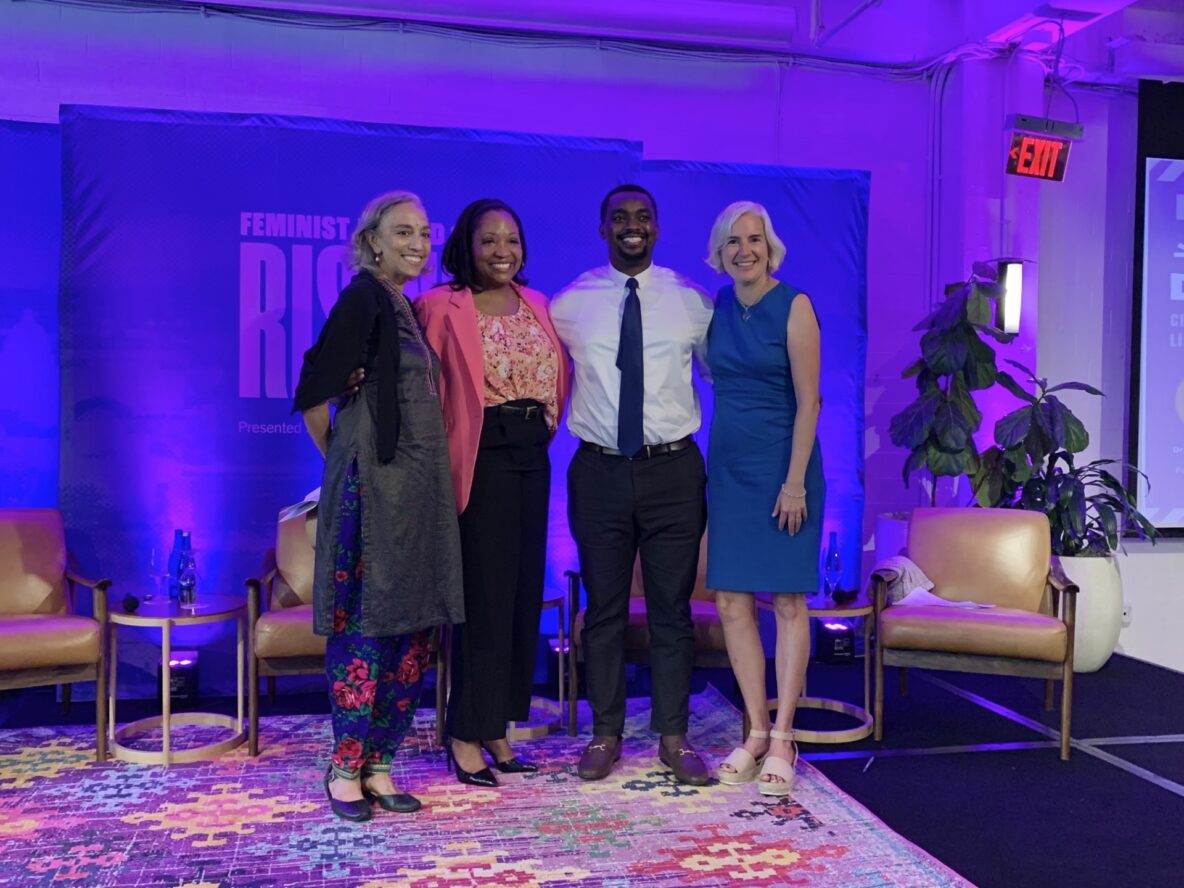
Earlier this month, Rise Up team members attended the Women’s Funding Network’s Feminist Funded ‘23 conference that brought together global leaders in feminist philanthropy to strategize on creating a more just, equitable, and safer world for all.
Rise Up was proud to host a plenary discussion highlighting what it truly means to invest in the vision, priorities, and strategies of local leaders. The session — Closest to the Problem, Closest to the Solution: Listening to Local Leaders to Transform Philanthropy — explored findings from Rise Up’s 2022 external evaluation conducted by Dalberg Advisors. This research surveyed more than 220 leaders in 14 countries and was guided by an Advisory Council made up of 16 leading advocates and philanthropists, including representatives from the Bill & Melinda Gates Foundation, The David and Lucile Packard Foundation, Tides Foundation, Echidna Giving, and Cartier Philanthropy.
Joined by an audience of funders, activists, and researchers, Rise Up’s Founder and Executive Director, Dr. Denise Raquel Dunning moderated a powerful discussion with Siobhan Davenport, Program Officer of the Advancing Girls Fund at the Tides Foundation, Kavita N. Ramdas, Activist in Residence at the Global Fund for Women, and Dr. Jean Berchmans Uwimana (Berky), Rise Up Leader and Founder of Flavours of Family Planning. Panelists explored key takeaways from the research, including recommendations for funders on how to operationalize shifting power to local leaders.
The research demonstrated that: 75% of local leaders said their work is under-resourced, 30% face political instability and lack of political will, 25% struggle to combat entrenched harmful practices and beliefs, and 10% face threats of violence. Local leaders surveyed reported that they are not just looking for funding, but for integrated support — the training, accompaniment, network, and resources they need to achieve their goals.
Each of the panelists brought unique perspectives to the discussion. Kavita stressed the importance of continuing to question what our current funding landscape looks like. “The fact that we stand with women and girls in different parts of the world means that we also have to be willing and creative enough to stand up for them in situations that are uncomfortable to us,” Kavita said.
Siobhan highlighted the urgent threats posed by the anti-gender movement. She stressed the importance of funding intermediaries who collaborate seamlessly with local leaders to effect real change. “The Tides Foundation funds intermediaries like Rise Up because they are experts at finding our next generation of ‘on the ground leaders’ that we do not have the capacity to find,” Siobhan said.
One of the most powerful moments of the plenary happened when Berky shared his perspective as a grassroots public health advocate in Rwanda: “Above all, I have three asks of funders in the room: listen actively to community leaders who have invaluable context and experience, fund us flexibly to be able to adapt to changing local demands, and, finally, trust our expertise because local leaders have an intimate awareness of their issues. Our solutions cannot be generalized.”
We are grateful to our brilliant panelists and to Women’s Funding Network for giving us the space to have this critical conversation. We can’t predict what the gender equity landscape will look like in the future, but one undeniable truth remains: if our sector listens to, collaborates with, and intentionally funds local community leaders, our future will be bright.


